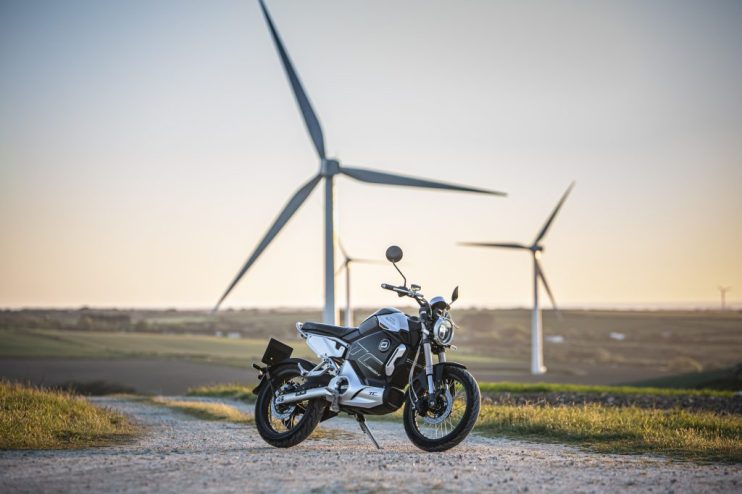Not just electric cars: Super SOCO and the rise of e-mopeds

Electric cars have dominated the discourse around sustainable mobility for some time now.
Not only did the UK Government recently pledge to ban the sale of all fuel cars from 2030, but manufacturers have also jumped on the bandwagon and started mass producing electric vehicles.
According to data from the Society of Motor Manufacturers and Traders (SMMT) automotive production in Britain has hit the lowest in more than a decade but the demand for electric cars does not seem to waver.
The UK EV output – including battery-electric, plug-in and hybrid – now represents 25.8 per cent all production.
Even though EV production is not going to decrease, another mode of transport – electric mopeds – has been grossly overlooked.
E-mopeds are not as talked about or invested in despite the benefits they provide mainly because of historical and cultural reasons.
According to Richard Jordan, chief executive of e-moped producer Super SOCO, post-WW2 many Brits’ appetite for motorcycles was high but faltered once cars became cheaper and more available for mass consumption.
Now demand is up again as the pandemic shifted habits and skyrocketing costs of living stopped people from buying electric cars, which are considered too expensive by many families.
“E-mopeds are about a tenth of the cost [of an EV] and 1/15 the cost of petrol car,” Jordan told City A.M. “And if you’re moving yourself or small amounts of goods, they are just a much easier way to go around.”
In terms of environmental benefits, e-motorcycles are also greener compared with cars as their life cycle – including production, use, electricity and disposal – is about a sixth of that of an EV.
“Electric mopeds are much better for the environment than even an electric car,” Jordan continued. “Driving that step change can really help lower emissions.”
Founded in 2015, Super SOCO is one of the UK’s biggest e-moped manufacturers with 30 per cent of the electric market and 2 per cent of the overall market.
People’s need for independent travel during the pandemic played a big part in the company’s success.
“The pandemic had a great impact on our sales, but it has also woken people up to the fact that there is a better way to do this,” he said. “There is a way that we can enhance our experience of personal mobility and also get around town emission free.”
Despite demand continuing to grow, Jordan believes the motorcycle industry still suffers from a real image problem, as the average buyer’s age is 57 and it’s 92 per cent male.
“One of the things we’re hoping to do is spread the word. It isn’t all about capsuled leathers,” he continued. “[E-mopeds] can really work with people’s lifestyles.”
To help e-motorcycles become as popular as electric cars, Jordan called on the government to actively help the industry by undoing the “damage it did” when in December 2021 it made changes to the plug-in grant scheme.
Under the revised plan, plug-in electric motorcycles worth more than £10,000 are no longer eligible to receive a grant up to £1,500.
“We’re not sure why they did that and the best thing [the government] could do is undo the damage they did in November and reinstate the grants for electric motorcycles,” the chief executive concluded.